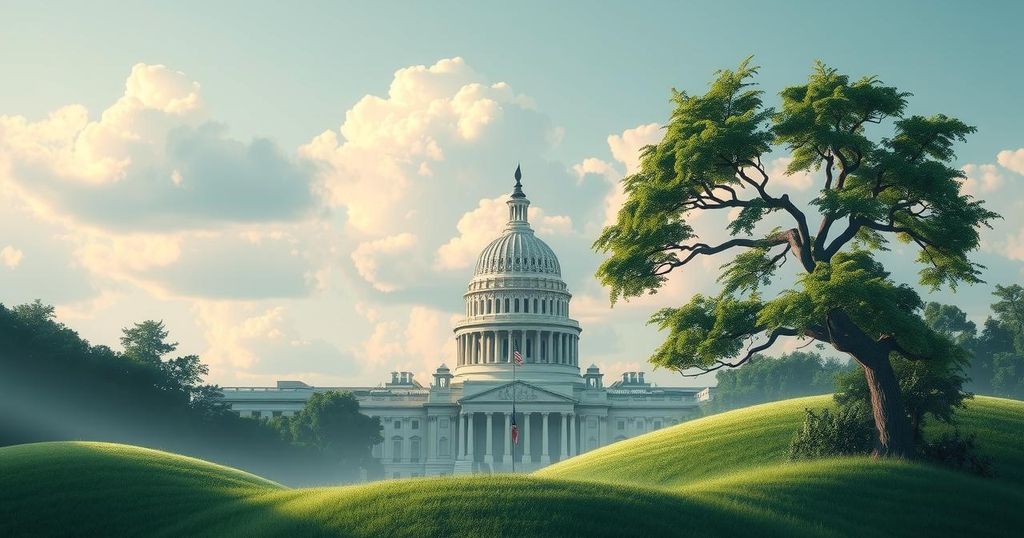Yamandu Orsi was inaugurated as Uruguay’s president, reviving leftist governance after five years of center-right rule. He pledges to address economic and social issues, while acknowledging the historical challenges stemming from the country’s past. With favorable public opinion, Orsi faces a divided parliament and internal coalition challenges ahead.
Yamandu Orsi was inaugurated as the new president of Uruguay on Saturday, marking a return to leftist leadership in the country after five years under center-right president Luis Lacalle Pou. Uruguay, known for its stability and prosperity, celebrated 40 years of uninterrupted democracy during the inauguration held at Montevideo’s Legislative Palace. Orsi’s election comes amidst a backdrop of social and economic challenges, with his predecessor’s leadership having received criticism from various sectors.
In his inaugural speech, President Orsi, age 57, emphasized the significance of democracy in connection with the well-being of the populace. He paid homage to his mentor, the revered former president Jose “Pepe” Mujica, who supported his campaign while contending with health issues. As he steps into office for a five-year term, Orsi has committed to safeguarding the economy, addressing drug-related crime, and ensuring development that is both sustainable and humane.
Orsi is the ninth president since Uruguay transitioned from a repressive civil-military dictatorship in 1985, a regime notorious for the disappearance of many Uruguayans. He expressed the importance of maintaining a commitment to freedom, truth, and justice in the face of historical scars from that era. Public sentiment was notably positive on his inauguration day, with supporters expressing relief and anticipation for change during Orsi’s administration.
With a poll showing 44 percent voter approval, Orsi is stepping into a challenging political climate, where his Broad Front coalition only controls the Senate while facing a divided parliament. His administration will likely grapple with internal tensions within the coalition, as analysts note that his ability to negotiate will be crucial. Additionally, sustained drought conditions pose concerns for economic growth, which is estimated at around three percent this year, increasing challenges related to social demands and budgetary constraints.
Despite these adversities, economist Arturo Porzecanski posits that Orsi takes office within a context of fundamental economic stability, which could prove advantageous as he navigates the complexities of governance in Uruguay.
Yamandu Orsi’s inauguration represents a pivotal shift back to leftist governance in Uruguay, accompanied by a commitment to address pressing social issues and maintain economic stability. His relationship with former president Jose “Pepe” Mujica and the challenges ahead, including coalition management and resource constraints, will shape his presidency. The public’s support offers an optimistic outlook as Orsi attempts to fulfill his promises in a divided political landscape.
Original Source: www.iosconews.com






